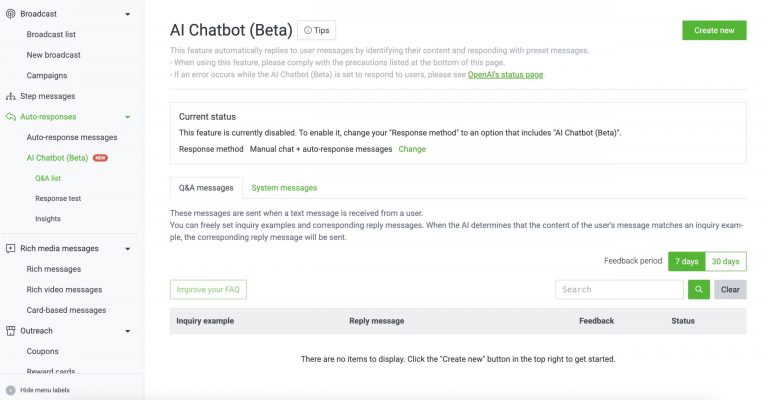On June 30, 2025, TikTok Shop officially launched in Japan, introducing an all-in-one in-app shopping experience where users can discover, engage, and purchase products without leaving the TikTok app. This move positions TikTok as a serious contender in Japan’s competitive e-commerce landscape—bringing its successful “shoppertainment” model to one of the world’s most digitally mature markets.
With over 39 million active TikTok users in Japan, the potential for brands—especially in fashion, beauty, lifestyle, and electronics—is enormous.
What Is TikTok Shop?
TikTok Shop is a commerce engine built into the TikTok ecosystem. It integrates product listings into shoppable videos, live streams, and dedicated brand pages, allowing users to:
- Watch content, tap a tag, and purchase on the spot,
- Join live shopping events and buy during the stream,
- Explore product collections via shop tabs or affiliate links.
There’s no need to redirect to external websites—transactions happen seamlessly in-app, reducing friction and increasing conversions.
Why It Matters
1. Seamless Commerce Meets Discovery
Users discover products naturally in their feed or during live sessions—making it easier for brands to turn attention into action. The entire purchase journey—awareness, interest, decision, action—happens within one platform.
2. Algorithmic Targeting
TikTok’s recommendation system serves shoppable content to the right users at the right time, based on interests, watch behavior, and interaction history—giving even small brands a chance to scale.
3. Content-Driven Sales Strategy
Brands must publish consistently, collaborate with creators, and run live events to stay visible.
The Five Main Selling Strategies on TikTok Shop
1. Affiliate Marketing Through Influencers
TikTok’s affiliate model lets creators promote products and earn commission from in-app sales.
- Creators with 1,000+ followers can apply to join the affiliate marketplace.
- Brands offer commission rates (typically 5–20%) and list products for creators to promote.
- Creators request access or brands invite them directly.
- All sales are tracked via affiliate links, and payouts are managed within the platform.
This approach incentivizes creators to drive conversions, not just awareness—and allows brands to scale without upfront media spend.
2. Live Shopping (Live Commerce)
Livestreaming is one of the most powerful tools on TikTok Shop—especially in Japan, where real-time product engagement is already well established.
- Hosts demo products, answer questions, and offer exclusive deals live,
- Viewers can purchase instantly, with product links shown on screen,
- Brands can run streams from their own account or have influencers host on their behalf,
- Best sessions run 60–90 minutes and feature flash offers, limited drops, or Q&A.
Live commerce builds urgency and trust, often resulting in higher average order value and real-time conversions.
3. Branded Content and Shoppable Videos
Every piece of content becomes a storefront.
- Brands can post product demos, how-tos, styling tips, and more—each with direct purchase links,
- The algorithm rewards regular, engaging posts over one-off polished videos,
- Successful brands publish multiple times per week to stay top-of-feed,
- Creators can also tag products in organic content, turning reviews into transactions.
This strategy is ideal for showing lifestyle fit, tutorials, and storytelling that drives emotional purchase triggers.
4. Shop Tab and Brand Storefront
Each brand has its own profile-based storefront within TikTok.
- Users can explore the full catalog directly from the brand’s profile.
- Collections, bundles, and limited-time offers can be featured.
- It builds trust with repeat customers who want to browse beyond one product.
- Reviews and ratings help support purchase decisions.
While storefront traffic is typically driven by content, having a curated, polished shop supports brand equity and deeper product discovery.
5. Paid Ads and Spark Ads
TikTok’s ad ecosystem enables brands to scale fast and precisely.
- In-Feed Ads: Appear in the user’s scroll, can link to product pages or live events.
- Spark Ads: Boost existing organic posts—especially from creators—for broader reach.
- Targeting: Ads can segment by age, gender, interest, behavior, and more.
- Objectives: Brands can optimize for product views, clicks, or direct purchases.
Spark Ads are especially effective when amplifying creator content that’s already performing. The key is authenticity—ads that feel native drive far better engagement.
Key Considerations for Japanese Brands
Data Access
TikTok, like Amazon, owns the user and transaction data. Brands get visibility into GMV, CTR, and other metrics, but not customer emails or full buyer profiles. That makes in-platform loyalty and branding all the more important.
Brand Safety
With creators empowered to promote your products, brand alignment is crucial. Japanese consumers value brand consistency and presentation—ensure all partners understand your visual and verbal tone.
Protect Your Brand Image
While TikTok’s creator model is flexible, it’s critical to vet influencers for tone, audience, and alignment. One mismatched partnership can hurt a brand’s perception—especially in Japan, where trust and consistency matter.
Adapt to Local Behavior
- Japanese TikTok users skew slightly older than global averages—44% are aged 35+.
- Content must be clear, informative, and aesthetically refined.
- Live shopping isn’t new in Japan—Instagram Live and LINE paved the way—but TikTok’s real advantage is discovery at scale.
Final Thoughts
TikTok Shop’s arrival in Japan offers a first-mover advantage for brands that prepare now. With high engagement, powerful influencers, and effective livestream strategies, early adopters can build long-term traction and loyalty.
By mirroring U.S. best practices—starting with accessible products, scaling influencer partnerships, and optimizing through data—Japanese brands can unlock TikTok Shop’s full potential.




